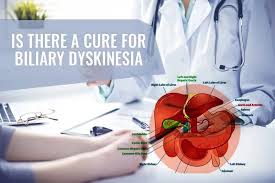Understanding Gallbladder Polyps: What You Need to Know
Gallbladder polyps are abnormal growths that form on the inner lining of the gallbladder. While many people with gallbladder polyps don’t experience symptoms, the condition can sometimes lead to complications if left untreated. In this article, we will explore various gallbladder polyps treatment options available today, including lifestyle changes, medications, and surgical interventions. Understanding your options can help you make informed decisions about your health with the guidance of professionals like Er of Dallas.
What Are Gallbladder Polyps?
Before diving into treatments, it’s important to understand what gallbladder polyps are and how they affect the body. These polyps are typically discovered during imaging tests like ultrasounds or CT scans. They can vary in size and number, and while most are benign (non-cancerous), some may pose a risk of developing into cancer. Gallbladder polyps are often classified based on their appearance, with the most common types being cholesterol polyps and adenomas.
Types of Gallbladder Polyps
- Cholesterol Polyps: The most common type, these are made of cholesterol deposits and are generally harmless.
- Adenomas: These are benign tumors but can have a higher risk of becoming cancerous.
- Inflammatory Polyps: Often resulting from chronic inflammation or infections, these polyps are usually benign.
- Papillary Adenomas: Rare and more complex, these polyps can pose a higher cancer risk.
Symptoms of Gallbladder Polyps
Gallbladder polyps often do not cause any symptoms, especially in the early stages. However, larger polyps or polyps that cause inflammation may lead to the following symptoms:
- Abdominal pain or discomfort (typically in the upper right side)
- Nausea and vomiting
- Indigestion or bloating
- Yellowing of the skin or eyes (in severe cases)
If you experience any of these symptoms, it’s crucial to seek medical attention from a professional, such as the experts at Er of Dallas, for an accurate diagnosis and treatment plan.
Diagnosing Gallbladder Polyps
Diagnosis of gallbladder polyps typically involves:
- Ultrasound Imaging: The most common and non-invasive method used to identify gallbladder polyps.
- CT Scan or MRI: These may be used to further assess the size and type of the polyps.
- Blood Tests: To check for any liver function abnormalities or signs of infection.
Once diagnosed, a doctor will determine the appropriate course of action based on the size, type, and potential risk factors associated with the polyps.
Effective Gallbladder Polyps Treatment Options
When it comes to treating gallbladder polyps, your doctor may recommend different approaches based on the severity of the condition, your overall health, and whether the polyps are causing symptoms. Here are some of the primary treatment options:
1. Watchful Waiting (Observation)
For small, asymptomatic gallbladder polyps, a “watchful waiting” approach is often recommended. This means that your doctor will monitor the polyps over time through regular imaging tests to track any changes in size or appearance. If the polyps remain small and do not cause symptoms, no immediate treatment may be necessary.
2. Lifestyle Changes
In some cases, lifestyle changes can help reduce the risk of polyps growing larger or causing symptoms. These changes may include:
- Eating a balanced diet rich in fiber, fruits, and vegetables
- Maintaining a healthy weight to prevent gallstones and other gallbladder issues
- Limiting intake of unhealthy fats and cholesterol-rich foods
While these lifestyle changes may not directly shrink gallbladder polyps, they can improve overall gallbladder health.
3. Medications for Cholesterol Polyps
If the polyps are caused by cholesterol deposits, medications like statins may help lower cholesterol levels in the body. This can reduce the likelihood of cholesterol polyps growing larger. Your doctor may also recommend medications to manage symptoms like indigestion or nausea.
4. Surgical Treatment: Cholecystectomy
For larger polyps, or if the polyps show signs of cancerous changes, surgery may be necessary. Cholecystectomy, or the removal of the gallbladder, is the most common surgical treatment for gallbladder polyps that pose a risk to health. This procedure can be performed laparoscopically, which is minimally invasive and allows for a quicker recovery time.
5. Endoscopic Treatment
In some cases, particularly with inflammatory or papillary adenomas, endoscopic treatment may be recommended. This approach involves inserting a small camera and surgical instruments into the gallbladder through the bile duct to remove the polyps. This method is less invasive than open surgery and may be an option if the polyps are located in certain areas of the gallbladder.
6. Treatment for Associated Conditions
In cases where gallbladder polyps are linked to other conditions, such as chronic inflammation or infection, your doctor may treat the underlying condition first. This might involve antibiotics for infections or anti-inflammatory medications to reduce swelling and discomfort.
7. Monitoring Post-Surgery
For patients who undergo cholecystectomy, post-surgery care is crucial for a full recovery. This includes a special diet and avoiding high-fat foods to allow the body to adjust to the removal of the gallbladder. Regular follow-up appointments with your doctor, such as those provided by Er of Dallas, will ensure that you are healing properly and that there are no complications.
FAQs about Gallbladder Polyps Treatment
1. Do I need to worry about gallbladder polyps?
Gallbladder polyps are usually harmless, especially if they are small. However, larger polyps or those that grow over time may require treatment or monitoring to reduce the risk of complications.
2. How can I prevent gallbladder polyps?
There is no guaranteed way to prevent gallbladder polyps, but maintaining a healthy weight, eating a balanced diet, and avoiding excessive alcohol and unhealthy fats can help promote overall gallbladder health.
3. Can gallbladder polyps turn into cancer?
While most gallbladder polyps are benign, certain types, such as adenomas or papillary adenomas, have a higher risk of developing into cancer. Regular monitoring and timely treatment can help reduce this risk.
4. What is the recovery time after gallbladder surgery?
If you undergo cholecystectomy, most people recover within a few weeks, especially if the surgery is minimally invasive. Your doctor will provide specific post-surgery care instructions for a smooth recovery.
5. How often should I get checked for gallbladder polyps?
If you have gallbladder polyps, regular follow-up appointments are essential for monitoring their size and any potential complications. Your doctor will recommend how often you should be checked based on the specifics of your condition.
Conclusion
Gallbladder polyps treatment varies depending on the size, type, and symptoms associated with the polyps. If you suspect you have gallbladder polyps, it’s important to consult with a healthcare provider, such as those at Er of Dallas, to determine the best course of action for your health. Whether through watchful waiting, lifestyle changes, medications, or surgery, there are effective treatments to manage gallbladder polyps and improve your overall health.
By staying informed and seeking professional care, you can confidently navigate your treatment options and ensure a healthier future.
For MORE blogs visit https://trendingblogsweb.com/





